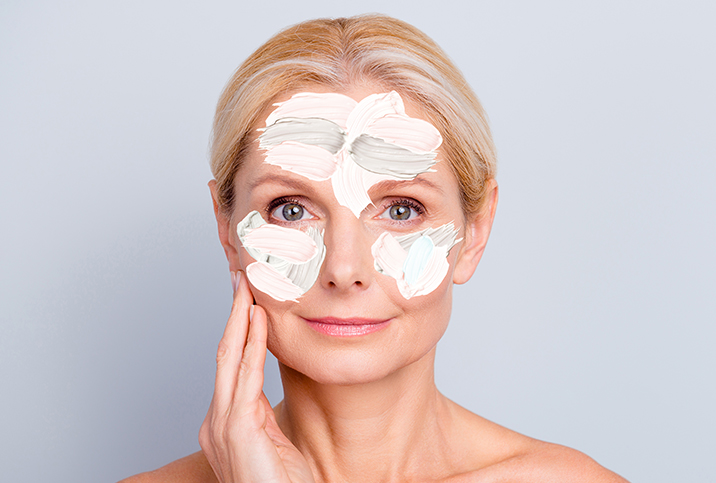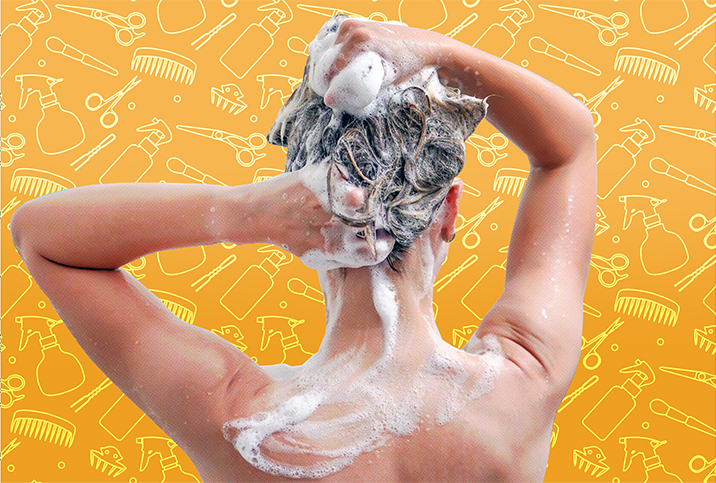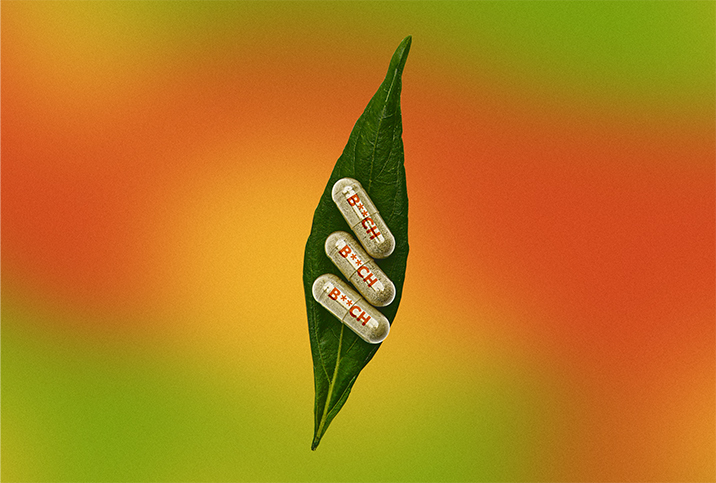Is Your Period to Blame for Bad Hair Days?

Hormones are to blame for mood swings, emotional outbursts and acne during menstruation, but could your period be behind bad hair days, too?
A 2003 study involving 13 women suggested that bad hair days are more common during menstruation than any other time in the cycle.
Furthermore, many women complain their hair and scalp appear oily while on their period.
While research on the topic is limited, we wanted to investigate if there really is a connection between your period and the quality of your hair.
The impact of hormones
Throughout your menstrual cycle, estrogen, progesterone and testosterone levels rise and fall. In the days leading up to your period, estrogen and progesterone levels are at their lowest, whereas testosterone levels are much higher.
"It is this relatively high level of testosterone that results in increased sebum excretion, [i.e.,] oily skin and hair, and also causes a flare in acne before the menstrual period," explained Daniel Glass, M.B.Ch.B., M.R.C.P., consultant dermatologist at Dermatology Clinic London.
While an oily scalp might seem harmless, it can trigger a condition called seborrheic dermatitis, which can lead to an itchy scalp, said Unnati Desai, M.B.Ch.B., M.R.C.G.P., medical director at Skinfluencer, an aesthetic and laser skin clinic in London.
Seborrheic dermatitis is a chronic skin condition that commonly affects the scalp and it's linked to dandruff and itchy, red patches on the skin. It's unclear exactly what causes the condition, but washing your hair regularly with mild soap and using a clarifying shampoo once a week could reduce oily skin and dead skin cell buildup.
Not everyone experiences oily hair or an itchy scalp during their period, as hormones can fluctuate from person to person. There are many factors at play: diet, lifestyle, medications, underlying medical conditions and the frequency of hair washing. If you're dealing with an excessively oily scalp or an itchy, flaky scalp, you should seek advice from a dermatologist who can explore the cause and find the right treatment.
What about hair loss?
Some women also report hair loss just before and during menstruation. The reason could be lower levels of estrogen, Glass explained. Estrogen is believed to protect against hair loss, so when these levels are low and testosterone remains high, this imbalance can be a trigger for hair loss. However, an imbalance of hormones isn't the only cause of hair loss.
"If your periods are heavy, this can result in a temporary iron deficiency, which may also contribute to the hair shedding," Desai said.
In many cases, hair loss during your period is not normal, especially if there is excessive shedding. If an iron deficiency or another underlying medical condition is suspected, you should consult your doctor, as the effects can be serious if the condition goes untreated.
What's normal and what isn't
Experiencing a slightly oilier scalp and some mild hair loss during your period can be normal, but it's important to note any changes or patterns that concern you. Throughout your cycle, write down your symptoms and when they appear, as this can provide some insight into the cause. If you have heavy periods accompanied by extreme hair loss and shedding, you could have iron deficiency anemia, which would need to be confirmed with a blood test.
Abnormal hair loss typically appears as a receding hair line, thinning in some areas, shedding or clumps of hair falling out. Your hair may also appear limp, thin and lifeless. These are all signs of a medical issue and should never be ignored.
Can hair loss be prevented?
It's not always possible to prevent hair loss, but in many cases, hair loss is reversible. General health checks, such as testing thyroid hormone levels and ferritin levels—the protein inside your cells that stores iron—can be beneficial. Studies indicate that hair growth can be less affected by hormonal variation if ferritin levels are within the normal range, according to Glass.
Antiandrogen therapy is a medication that can be given to some patients who want to reduce the effects of testosterone, which can help in reducing acne, oily hair and scalp, and hair loss. There are a few types of medication that can be prescribed, and in many cases, a combined hormonal contraceptive is the best solution because it helps balance hormone levels and reduce heavy periods.
Health and lifestyle changes can make a difference in some women, especially if you are trying to avoid medications or have underlying health issues.
Generally, a healthy and balanced diet can help improve the condition of your hair and scalp. Taking a daily vitamin D tablet can be beneficial for people who spend a lot of time indoors. Always consult your doctor before taking any supplements.
"Incorporate leafy greens, proteins, healthy fats and whole grains into your diet, and ensure that iron-rich foods and biotin are also included to optimize your hair health," Desai said.


















